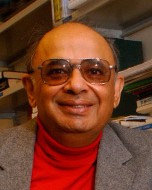 The world has a history of financial crisis and business cycle downturns. Linear models of business cycles cannot explain these repeated crises and downturns. Each time, rational agents are persuaded that "this time it is different." While the crises repeat, there is also emerging novelty that linear models cannot handle. On the other hand, trying to estimate chaotic dynamics in economics has proved to be difficult as the time series are short and often noncomparable due to emerging novelty. Nevertheless, some sense needs to be made of the current downturn which invites comparison with the Great Depression. In my talk I plan to focus on the financial crisis of 2008 and the accompanying downturn in the US. I argue that a skewed income distribution could not sustain effective demand and that over the 2001-2006 Bush expansion demand was maintained through massive amounts of credit, with more than 50 percent of sales in the US being maintained through credit. A vector autoregression model confirms the crucial role played by credit. However, legislative changes that dismantled the restrictions place on the financial sector after the crash of 1929 and the consequent structural changes in the financial sector after 1980 enabled the growth of new debt instruments and credit. But overexpansion of credit when profits and house price were declining in 2005/06, led to a nonlinear shift in expectations due to a new realization of the poor quality of some of this debt, namely mortgaged backed securities. Bankruptcies, followed by retrenchment at the banks, then led to the bursting of the credit bubble, with the possibility of a severe recession.
The world has a history of financial crisis and business cycle downturns. Linear models of business cycles cannot explain these repeated crises and downturns. Each time, rational agents are persuaded that "this time it is different." While the crises repeat, there is also emerging novelty that linear models cannot handle. On the other hand, trying to estimate chaotic dynamics in economics has proved to be difficult as the time series are short and often noncomparable due to emerging novelty. Nevertheless, some sense needs to be made of the current downturn which invites comparison with the Great Depression. In my talk I plan to focus on the financial crisis of 2008 and the accompanying downturn in the US. I argue that a skewed income distribution could not sustain effective demand and that over the 2001-2006 Bush expansion demand was maintained through massive amounts of credit, with more than 50 percent of sales in the US being maintained through credit. A vector autoregression model confirms the crucial role played by credit. However, legislative changes that dismantled the restrictions place on the financial sector after the crash of 1929 and the consequent structural changes in the financial sector after 1980 enabled the growth of new debt instruments and credit. But overexpansion of credit when profits and house price were declining in 2005/06, led to a nonlinear shift in expectations due to a new realization of the poor quality of some of this debt, namely mortgaged backed securities. Bankruptcies, followed by retrenchment at the banks, then led to the bursting of the credit bubble, with the possibility of a severe recession.
Mohammed Dore is a Professor of Economics at Brock University where he was the first Director of Environmental Economics. He has worked on resource management issues and sustainability ever since arriving in Canada in the late 1970s. His early work on sustainable forestry led to the establishment his NSF funded climate change laboratory in 1996. In 2001 he began work on water infrastructure as one of seven theme leaders in the Canadian Water Network that was established in to provide a vision for the effective management and use of water resources in Canada. Mohammed has a particular interest in the long-term supply and demand of water, and in the impact of climate change on water and water infrastructure. In 2002 he received Brock University's Distinguished Research Award, and in 2007 one of his former students endowed the Mohammed Dore Graduate Scholarship in perpetuity. Mohammed holds a D.Phil. from the University of Oxford.
 Purposeful acts appear pre-prepared as propensities to act. Propensities anticipate possible actions appropriate to the context at hand and consistent with the history of the actor. Anticipation, in this sense, situates the actor in the future, so far as circumstances allow. A conceptual tool to make sense of anticipation is self-organized criticality. The embodiment of anticipation self-organizes to stay close to critical points or choice points for possible actions. This hypothesis explains a growing body of research, focused on patterns of variation in sickness and in health, to gauge the anticipatory poise that precedes repeated actions.
Purposeful acts appear pre-prepared as propensities to act. Propensities anticipate possible actions appropriate to the context at hand and consistent with the history of the actor. Anticipation, in this sense, situates the actor in the future, so far as circumstances allow. A conceptual tool to make sense of anticipation is self-organized criticality. The embodiment of anticipation self-organizes to stay close to critical points or choice points for possible actions. This hypothesis explains a growing body of research, focused on patterns of variation in sickness and in health, to gauge the anticipatory poise that precedes repeated actions.
Guy Van Orden received his PhD in Psychology from University of California San Diego in 1984. Following postdoctoral positions at AT&T Bell Laboratories (1883-1984) and University of Colorado Health Sciences Center (1985-1987) he joined the Department of Psychology at Arizona State University where he directed the Graduate Program in Cognitive Systems and Behavioral Neuroscience (1992-1996). Since then, Dr. Van Orden has held visiting positions at the University of Amsterdam, University of Connecticut, and Catholic University, Eichstä, Germany. He served as guest editor for Ecological Psychology and currently serves on the editorial boards of Philosophical Psychology and The Mental Lexicon. From 2001-2005 he served as the Director of the program in Perception, Action & Cognition at the National Science Foundation. He has served on review and advisory panels for the U.S. National Science Foundation, U.S. Department of Defense, European Science Foundation, and European Commission, and is a Fellow of the American Psychological Association. He joined the Department of Psychology at the University of Cincinnati in 2007.